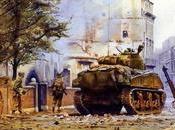La pubblicazione di un libro di Wallace Stevens, per quanto non recentissima (l'uscita è avvenuta nel Febbraio 2014) è sempre una bella notizia, soprattutto se lo si ritrova in una piccola biblioteca pubblica piena di gialli. Una cosa insolita, una piccola epifania. "Le aurore d'autunno" (Adelphi, 2014) sono l'ultima raccolta di Stevens, apparsa nel 1950. In Italia, sempre per la cura di Nadia Fusini che firma nel libro un saggio di introduzione importante e appassionato, era già stato pubblicato da Garzanti nel 1992, se non vado errato. Pubblico qui alcune delle poesie più brevi (ma certo non di minore importanza) e in un certo senso più "leggibili" (per quanto lo possa essere Stevens che è sempre aperto ad una moltiplicità di interpretazioni), tralasciando per ragioni di spazio i fondamentali poemetti come Aurore d'autunno, Un primitivo come un globo (che però è possibile leggere QUI), Cose d'agosto e soprattutto Una sera qualunque a New Haven. Queste, seppure più brevi, sono ugualmente importanti e capaci di dare l'intensa emozione che si prova sempre leggendo Stevens. E un'ottima occasione di rilettura, o di lettura per chi ancora non lo avesse fatto.
OMONE GRANDE E ROSSO CHE LEGGE
C'erano spettri tornati sulla terra per sentire le sue frasi,
Lui seduto che leggeva ad alta voce le grandi tabulae azzurre.
Erano quelli del deserto delle stelle che avevano atteso di più.
C'era chi tornava per sentirlo leggere dal poema della vita,
Della pentola sulla stufa, la brocca sul tavolo, i tulipani.
Erano quelli che avrebbero pianto pur di entrare scalzi nella realtà,
Avrebbero pianto di gioia, tremato di freddo nel gelo,
E gridato pur di sentirlo ancora, avrebbero accarezzato con le dita le foglie,
Le spine più acuminate, afferrandosi al brutto,
E ridendo, mentre lui seduto leggeva, dalle tabulae di porpora, I lineamenti dell'essere, le sue espressioni, le sillabe della sua legge:
Poesis, poesis, le lettere, i caratteri, i versi ispirati,
Che in quegli orecchi e in quei cuori sottili, esausti,
Prendevano forma, colore, e la misura delle cose così come sono,
E dicevano per loro l'emozione, che era ciò che era loro mancato.
QUESTA SOLITUDINE DI CATERATTE
Non sentì mai due volte uguale per il fiume maculato,
Che scorreva e mai due volte uguale, traversando
Molti luoghi, come stesse fisso in uno,
Fermo come un lago su cui volassero le anatre,
Turbando i suoi soliti riflessi, monadnock di pensieri.
Pareva che un'apostrofe aleggiasse impronunciata.
C'era tanto di quel reale che non era reale affatto.
Voleva sentire ancora e ancora uguale.
Voleva che il fiume continuasse a scorrere uguale,
Che scorresse. Voleva camminarci accanto,
Fra i platani, sotto una luna inchiodata salda.
Voleva che il cuore smettesse di battere e la mente
S'arrestasse in una percezione duratura, senz'anatre,
O montagne che non erano montagne, tanto per sapere
Com'era; che cosa si sentiva, liberi dalla distruzione,
A essere uomini di bronzo vivi sotto la volta
D'arcaico lapislazzulo, senza l'oscillazione del traffico
Planetario, vivi di vita bronzea al centro azzurro del tempo.
L'INIZIO
Così alla fine l'estate si riduce a queste poche macchie
Di ruggine e di marcio sulla porta da cui lei è uscita.
La casa è vuota. Ma qui è dove sedeva e si pettinava
I capelli di rugiada, una luce immacolata,
Perplessa da più scure iridescenze.
Questo era lo specchio in cui era solita mirare
L'essere dell'istante, senza storia,
Il sé dell'estate percepito alla perfezione,
E sentire la sua gioia silvestre e sorridere
E sorprendersi e tremare, mano e labbro.
Questa è la sedia da cui raccoglieva
La propria veste, il più studiato, il più ampio
Tessuto intessuto da un tessitore al suono
Di dodici campane... La veste giace a terra,
Abbandonata. I primi tutoyer della tragedia
Ora parlano piano, dapprima, nelle gronde.
IL POEMA FINALE E' ASTRATTO
Di che si dibatte oggi? Il conferenziere
Su Questo Nostro Meraviglioso Mondo compunto
esitante e titubante parla di un pianeta rosa e maturo,
E rosso e giusto. La domanda precisa - la risposta
Precisa alla domanda precisa non è
Il punto - il punto è la domanda.
Se oggi si dibatte, non è a causa di rivelazioni.
Semmai si contìnua a far domande. Questa è una
Delle categorie. Ciò detto, questo spazio placido
E cambiato. Non è poi così blu come credevamo. Perché
Sia blu, non ci devono essere domande. Un intelletto
Che muove tortuoso, avanza a scatti e si contorce
Lungo linee oblique e distanze errate non è
Un intelletto che ci renda agili: presenti subito
Dovunque nello spazio, polo-nuvola
Della comunicazione. Basterebbe essere una volta,
Una sola volta, al centro di Questo Nostro Meraviglioso Mondo
E non come ora, impotenti all'orlo,
Tanto basterebbe a essere completi,
Al centro, anche solo coi sensi, in quell'enorme senso
E, semplicemente, godere.
BOUQUET DI ROSE ALLA LUCE DEL SOLE
Diciamo pure che è un effetto volgare, rossi neri,
Gialli rosa, bianchi arancio, troppo come sono
Per essere altro nella luce piena della stanza,
Troppo come sono per volgere in metafora,
Troppo veri, cose che per esser vere
Sminuiscono ogni immaginazione di loro.
E tuttavia quest'effetto è conseguenza del modo
In cui sentiamo e, perciò, non è reale, tranne
Nel senso che ne abbiamo, il senso del rosso più fecondo,
Del giallo come primo colore e del bianco,
In cui il senso riposa, come riposa un uomo,
Enorme, al colmo della propria verità.
Il nostro senso delle cose muta ed esse mutano,
Non come per metafora ma nel senso
Che ne abbiamo. Così il senso eccede ogni metafora.
Eccede il pesante mutare della luce.
E come un flusso di significati senza discorso
Con tanti significati quanti sono gli uomini.
Siamo due che usiamo queste rose come siamo,
Nel vederle. E questo le fa sembrare tanto
Al di sopra della presa del retore.
METAFORA COME DEGENERAZIONE
Se c'è un uomo bianco come il marmo
Siede nel bosco, dov'è più verde,
Covando i suoni di immagini di morte,
C'è anche un uomo nello spazio nero,
Siede non sappiamo dove,
Covando i suoni dei fruscii del fiume;
E queste immagini, queste riverberazioni,
E altre ancora, assicurano che l'essere
Include la morte e l'immaginazione.
L'uomo di marmo rimane se stesso nello spazio.
L'uomo dal bosco nero scende immutato.
E sicuro che il fiume
Non è il Swatara. L'acqua scura
Che gira intorno alla terra e traversa il cielo,
Serpeggiando negli spazi planetari,
Non è il Swatara. E l'essere.
E il fiume a pecorelle-maculato, l'acqua,
Lo sfolgorio rigonfio - o è l'aria?
Com'è, dunque, che la metafora degenera,
E il Swatara diventa questo fiume ondulante,
E il fiume un oceano senza terra, senz'acqua?
Qui le viole nere crescono fin giù alle sponde
Che il muschio monumentale decora di verde,
Mentre il fiume va avanti, scorre.
LA DONNA AL SOLE
E solo che questo calore e movimento sono come
Il calore e il movimento di una donna.
Non è che ci sia un'immagine nell'aria
Né l'inizio né la fine di una forma:
C'è il vuoto. Ma una donna d'oro compatto
Ci brucia col tocco della veste
E un'abbondanza dissociata d'essere,
Più definita per ciò che è lei -
Perché lei è disincarnata,
E porta l'odore dei campi estivi,
E confessa il taciturno e insieme indifferente,
Invisibile ma chiaro, il solo amore.
PUELLA PARVULA
Disfatto s'è alla fine ogni filo dell'estate.
Da un unico bruco l'Africa immensa è divorata
E Gibilterra s'è dissolta come sputo al vento.
Ma sul vento, sulle leggende che sibila possente,
L'elefante sul tetto e il barrito elefantino,
Il leone sanguinario nel cortile a notte o pronto al balzo
Dalle nuvole in mezzo agli alberi che tremano
Con grande stridio, sui marosi dell'alto mare
Aperto che declama a gola piena,
Su tutto trionfa la possente immaginazione
Come una tromba e dice, in questa stagione della memoria,
Quando le foglie cadono come cose che piangono il passato,
Sta' cheta in cuore, o cagna selvaggia. Mente
Impazzita, sii come ti dice di essere: Puella.
Scrivi pax sul vetro della finestra. E poi
Sta' ferma. Il summarium in excelsis comincia...
Fiamma, urlo, furore ricomposti... Ascolta quel che dice,
L'impavido signore, che comincia a raccontare la storia umana.
CIO' CHE VEDIAMO E' CIO' CHE PENSIAMO
Alle dodici cominciò la disintegrazione
Del pomeriggio, il ritorno al phantomerei, se non
Ai fantasmi. Finora era stato l'opposto:
Si immaginavano gli alberi violetti, ma erano verdi,
Alle dodici, verdi come non saranno mai.
Il cielo era blu al di là di ogni eloquenza.
Le dodici significava: la fine del tempo normale,
Verticale, un élan senza strazio, lo zenit
Imprescrittibile, libero da arringhe,
Le dodici, il primo grigio secondo dopo, una specie di grigio
Violetto, un verde violetto, un filo per tessere
La gamba o la manica di un'ombra, uno scarabocchio
Sul piedistallo, una pagina ambiziosa piegata
In alto a destra, una piramide con sul fianco
Come un taglio spettrale nella percezione, una pendenza
E la sua caricatura bruna e vita bruna,
Come un altro pensiero, d'importanza suprema...
Poiché ciò che pensiamo non è mai ciò che vediamo.
LE VECCHIE CAMPANE LUTERANE A CASA
Queste sono le voci dei pastori che chiamano
Nel nome di san Paolo e di Giovanni aureolato
E degli altri uomini santi e saggi, tra loro
Grandi coristi, cantori di inni, trombettieri,
Girolamo e Francesco meticoloso e le donne devote,
Le nutrici dell'innocenza dello spirito.
Queste sono le voci dei pastori che chiamano
Tanta gente rozza al soave paradiso,
Aprendo mura di fortezze come ali.
Immerso in quelle voci, stentoreo Martino canta.
Juan tenebroso guarda avanti con la fronte mistica...
Ogni campanaro ha la sua setta. Nessuna le campane
Queste sono le voci dei pastori che chiamano
E chiamano come l'eco lunga in un lungo sonno,
Generazioni di pastori a generazioni di greggi.
Ogni verità è una setta anche se non suona la campana.
E le campane, dopotutto, sono dei sagrestani,
Quando si appendono scalciando alla corda.
Note:
Monadnock è un termine utilizzato originariamente dai nativi
americani per indicare una collina isolata o una montagna che emergeva
da un'area piana, generalmente perché sopravvissuta all'erosione. Si
pensa che l'origine del nome derivi dal linguaggio Abenaki, dalle parole menonadenak ("montagna liscia") o menadena ("montagna isolata"). Il nome fu preso dal Mount Monadnock nel New Hampshire (USA) sudoccidentale.
Le vecchie campane luterane a casa: i nomi citati sono tutti di santi o mistici, a parte Martino, che probabilmente è il frate campanaro della celebre canzone a canone
*****
There were ghosts that returned to earth to hear his phrases,
As he sat there reading, aloud, the great blue tabulae.
They were those from the wilderness of stars that had expected more.
There were those that returned to hear him read from the poem of life,
Of the pans above the stove, the pots on the table, the tulips among them.
They were those that would have wept to step barefoot into reality,
That would have wept and been happy, have shivered in the frost
And cried out to feel it again, have run fingers over leaves
And against the most coiled thorn, have seized on what was ugly
And laughed, as he sat there reading, from out of the purple tabulae, The outlines of being and its expressings, the syllables of its law:
Poesis, poesis, the literal characters, the vatic lines,
Which in those ears and in those thin, those spended hearts,
Took on color, took on shape and the size of things as they are
And spoke the feeling for them, which was what they had lacked.
THIS SOLITUDE OF CATARACTS
He never felt twice the same about the flecked river,
Which kept flowing and never the same way twice, flowing
Through many places, as if it stood still in one,
Fixed like a lake on which the wild ducks fluttered,
Ruffling its common reflections, thought-like Monadnocks.
There seemed to be an apostrophe that was not spoken.
There was so much that was real that was not real at all.
He wanted to feel the same way over and over.
He wanted the river to go on flowing the same way,
To keep on flowing. He wanted to walk beside it,
Under the buttonwoods, beneath a moon nailed fast.
He wanted his heart to stop beating and his mind to rest
In a permanent realization, without any wild ducks
Or mountains that were not mountains, just to know how it would be,
Just to know how it would feel, released from destruction,
To be a bronze man breathing under archaic lapis,
Without the oscillations of planetary pass-pass,
Breathing his bronzen breath at the azury center of time.
THE BEGINNING
So summer comes in the end to these few stains
And the rust and rot of the door through which she went.
The house is empty. But here is where she sat
To comb her dewy hair, a touchless light,
Perplexed by its darker iridescences.
This was the glass in which she used to look
At the moment's being, without history,
The self of summer perfectly perceived,
And feel its country gayety and smile
And be surprised and tremble, hand and lip.
This is the chair from which she gathered up
Her dress, the carefulest, commodious weave
Inwoven by a weaver to twelve bells...
The dress is lying, cast-off, on the floor.
Now, the first tutoyers of tragedy
Speak softly, to begin with, in the eaves.
THE ULTIMATE POEM IS ABSTRACT
This day writhes with what? The lecturer
On This Beautiful World Of Ours composes himself
And hems the planet rose and haws it ripe,
And red, and right. The particular question - here
The particular answer to the particular question
Is not in point - the question is in point.
If the day writhes, it is not with revelations.
One goes on asking questions. That, then, is one
Of the categories. So said, this placid space
Is changed. It is not so blue as we thought. To be blue,
There must be no questions. It is an intellect
Of windings round and dodges to and fro,
Writhings in wrong obliques and distances,
Not an intellect in which we are fleet: present
Everywhere in space at once, cloud-pole
Of communication. It would be enough
If we were ever, just once, at the middle, fixed
In This Beautiful World Of Ours and not as now,
Helplessly at the edge, enough to be
Complete, because at the middle, if only in sense,
And in that enormous sense, merely enjoy.
BOUQUET OF ROSES IN SUNLIGHT
Say that it is a crude effect, black reds,
Pink yellows, orange whites, too much as they are
To be anything else in the sunlight of the room,
Too much as they are to be changed by metaphor,
Too actual, things that in being real
Make any imaginings of them lesser things.
And yet this effect is a consequence of the way
We feel and, therefore, is not real, except
In our sense of it, our sense of the fertilest red,
Of yellow as first color and of white,
In which the sense lies still, as a man lies,
Enormous, in a completing of his truth.
Our sense of these things changes and they change,
Not as in metaphor, but in our sense
Of them. So sense exceeds all metaphor.
It exceeds the heavy changes of the light.
It is like a flow of meanings with no speech
And of as many meanings as of men.
We are two that use these roses as we are,
In seeing them. This is what makes them seem
So far beyond the rhetorician's touch.
METAPHOR AS DEGENERATION
If there is a man white as marble
Sits in a wood, in the greenest part,
Brooding sounds of the images of death,
So there is a man in black space
Sits in nothing that we know,
Brooding sounds of river noises;
And these images, these reverberations,
And others, make certain how being
Includes death and the imagination.
The marble man remains himself in space.
The man in the black wood descends unchanged.
It is certain that the river
Is not Swatara. The swarthy water
That flows round the earth and through the skies,
Twisting among the universal spaces,
Is not Swatara. It is being.
That is the flock-flecked river, the water,
The blown sheen - or is it air?
How, then, is metaphor degeneration,
When Swatara becomes this undulant river
And the river becomes the landless, waterless ocean?
Here the black violets grow down to its banks
And the memorial mosses hang their green
Upon it, as it flows ahead.
THE WOMAN IN SUNSHINE
It is only that this warmth and movement are like
The warmth and movement of a woman.
It is not that there is any image in the air
Nor the beginning nor end of a form:
It is empty. But a woman in threadless gold
Burns us with brushings of her dress
And a dissociated abundance of being,
More definite for what she is -
Because she is disembodied,
Bearing the odors of the summer fields,
Confessing the taciturn and yet indifferent,
Invisibly clear, the only love.
PUELLA PARVULA
Every thread of summer is at last unwoven.
By one caterpillar is great Africa devoured
And Gibraltar is dissolved like spit in the wind.
But over the wind, over the legends of its roaring,
The elephant on the roof and its elephantine blaring,
The bloody lion in the yard at night or ready to spring
From the clouds in the midst of trembling trees
Making a great gnashing, over the water wallows
Of a vacant sea declaiming with wide throat,
Over all these the mighty imagination triumphs
Like a trumpet and says, in this season of memory,
When the leaves fall like things mournful of the past,
Keep quiet in the heart, O wild bitch. O mind
Gone wild, be what he tells you to be: Puella.
Write pax across the window pane. And then
Be still. The summarium in excelsis begins...
Flame, sound, fury composed... Hear what he says,
The dauntless master, as he starts the human tale.
WHAT WE SEE IS WHAT WE THINK
At twelve, the disintegration of afternoon
Began, the return to phantomerei, if not
To phantoms. Till then, it had been the other way:
One imagined the violet trees but the trees stood green,
At twelve, as green as ever they would be.
The sky was blue beyond the vaultiest phrase.
Twelve meant as much as: the end of normal time,
Straight up, an élan without harrowing,
The imprescriptible zenith, free of harangue,
Twelve and the first gray second after, a kind
Of violet gray, a green violet, a thread
To weave a shadow's leg or sleeve, a scrawl
On the pedestal, an ambitious page dog-eared
At the upper right, a pyramid with one side
Like a spectral cut in its perception, a tilt
And its tawny caricature and tawny life,
Another thought, the paramount ado...
Since what we think is never what we see.
THE OLD LUTHERAN BELLS AT HOME
These are the voices of the pastors calling
In the names of St. Paul and of the halo-John
And of other holy and learned men, among them
Great choristers, propounders of hymns, trumpeters,
Jerome and the scrupulous Francis and Sunday women,
The nurses of the spirit's innocence.
These are the voices of the pastors calling
Much rough-end being to smooth Paradise,
Spreading out fortress walls like fortress wings.
Deep in their sound the stentor Martin sings.
Dark Juan looks outward through his mystic brow...
Each sexton has his sect. The bells have none.
These are the voices of the pastors calling
And calling like the long echoes in long sleep,
Generations of shepherds to generations of sheep.
Each truth is a sect though no bells ring for it.
And the bells belong to the sextons, after all,
As they jangle and dangle and kick their feet.






